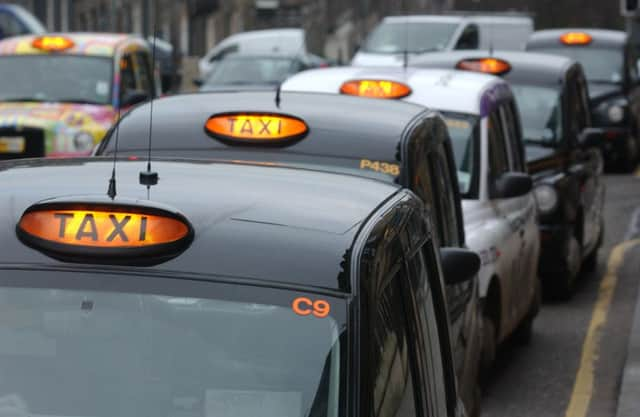Does Uber’s arrival spell trouble for black cabs?


Black cabs - or hackney carriages as they are formally known - have been carrying passengers through the streets of Edinburgh and Glasgow for decades.
While they already face competition from private hire cars, or minicabs, black cabs retain several important privilges. Only hackneys can be hailed in the street or use designated taxi ranks.
But the black cab faces a new threat to its supremacy.
Advertisement
Hide AdAdvertisement
Hide AdThe Scotsman revealed in February that the controversial taxi-booking service Uber had applied for operating licenses in both Glasgow and Edinburgh.
The San Fransisco-based company uses a smartphone app to connect passengers with vehicles, a system which it claims leads to cheaper fares.
The firm has not set a launch date for its Scottish operation but a spokesman said it hoped to be operating “as soon as possible.”
Uber already operates across the US and much of Europe, but its working practices have come under sharp scrutiny and the firm has endured a rocky relationship with taxi regulators.
Its offices in Amsterdam were raided last week and it already faces a lengthy legal battle in France. Two Uber executives face charges of “misleading commercial practices” and “complicity in the illegal exercise of the taxi profession.”
This week, London transport officials unveiled new taxi proposals which would limit drivers to working for a single company. Many of Uber’s drivers work part-time and have jobs in other sectors.
Despite such setbacks, the firm continues to expand and is now looking to tap into the market north of the border.
Scotland’s largest city already has 1425 taxi licenses in operation and 2640 private hire car licenses. In the capital, the number is 1316 taxis and 954 minicabs.
Advertisement
Hide AdAdvertisement
Hide AdUber’s UK regional general manager, Jo Bertram, said: “All drivers have the same licences as private hire drivers, with an enhanced criminal records check and medical check.”
She said passengers could use the Uber app to see how close the nearest vehicle was, book a journey and pay the fare.
James Cooper, a professor of urban transport regulation, told The Scotsman in February that Uber could offer Scottish passengers fares that were 30 per cent cheaper and predicted existing operators stood to lose 20-40 per cent of their business.
Speaking to the Scotsman earlier this year, Glasgow Taxis, the city’s largest operator, urged passengers to stick with established operators.
Vice-chair Stephen Flynn said: “When booking a taxi, the only way to ensure a fully licensed and disclosed vehicle and driver is to use a recognised company.
“Third-party systems can’t guarantee the same level of regulation and, when passenger safety should be absolutely paramount, that is concerning.”